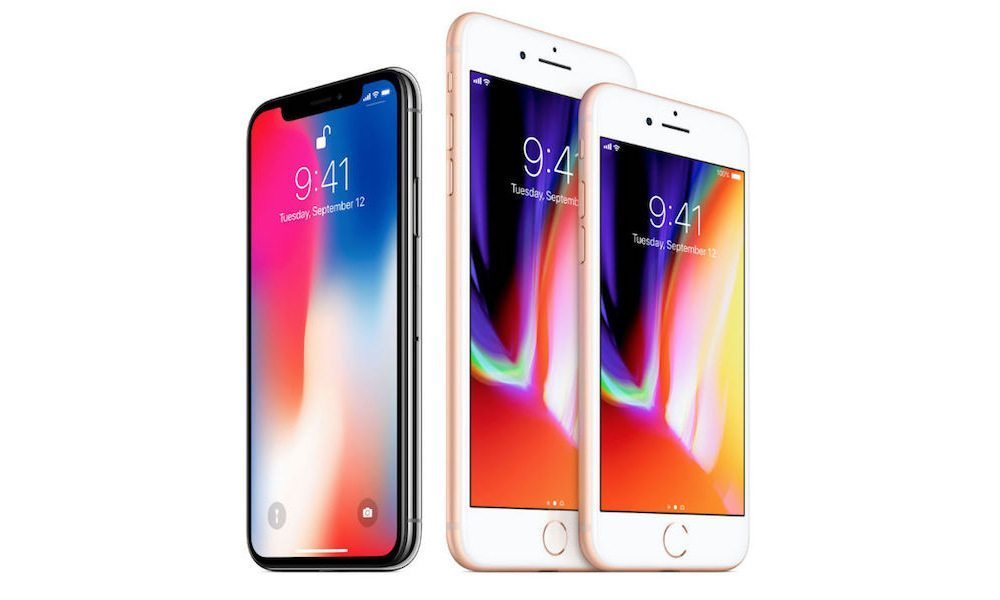Benchmarks Reveal iPhone X and 8 Are Faster Than Any Other Phone
 Credit: Apple
Credit: Apple
Toggle Dark Mode
The recently unveiled iPhone X and iPhone 8 might just be the fastest smartphones on the market when they ship, according to newly leaked benchmark statistics. In fact, it’s not even close.
The premium OLED iPhone X and the iPhone 8 lineup both sport Apple’s new A11 Bionic CPU — and, according to initial testing, the chipset is extremely powerful. It blows away the major flagship competition, and even achieves a higher speed rating than some current-generation computers. As far as the numbers go, a new scorecard with stats for a handset with the name iPhone10,5 was posted to Geekbench yesterday.
According to the stats, the device clocked a score of 9,959 in the multi-core Geekbench 4 test. For comparison’s sake, Samsung’s latest and greatest, the Galaxy Note 8, scored 6,737 in the same test. More than that, the “iPhone 10,5” ranked higher than some PCs. The 2016 Dell XPS equipped with an Intel Core i5-7200U scored 7,287.
The iPhone’s 9,959 is a seriously impressive score for a smartphone. You can see how that stacks up to other current flagships below.
- iPhone 7 – Apple’s previous flagship scored a high of 6,038 in one Geekbench test.
- Samsung Galaxy Note 8 – As previously mentioned, the Note 8 (under the designation of SM-N950U) scored a 6,737.
- Samsung Galaxy S8 – Even with its eight-core processor, the highest that the S8 scored in Geekbench testing is 6,943.
- Google Pixel – Google’s flagship smartphone scored a high of 4,384 in one test.
- Essential PH-1 – The Essential is equipped with an eight-core Qualcomm processor, and clocked a high of 6,599 in Geekbench tests.
While it’s not entirely clear which specific smartphone was tested, the newly benched Apple handset is likely sporting the A11 Bionic with 3 gigabytes of RAM. Those specs are expected to apply to both the iPhone X and the two iPhone 8 devices, as both devices will run on the A11 Bionic. So yes, all of Apple’s new iPhones are going to be incredibly fast.
The A11 Bionic is a six-core processor, with two high-performance cores and four high-efficiency cores. Reportedly, the four efficiency scores are rated to be 70 percent faster than Apple’s previous A10 CPU. The two high-performance cores will see a slightly lower boost in speeds, with a 25 percent increase from the last generation.
But the A11 doesn’t just deliver higher speeds. The new chipset should be much more efficient, which could contribute to its two-hour longer battery life. It’s smarter, too, as Apple managed to pack a built-in neural engine into the CPU. That piece of extra hardware is what enables the iPhone X’s machine learning and Face ID technology.
Apple unveiled the stable of new handsets at its Sept. 12 announcement event, including the $999 iPhone X, the $699 iPhone 8, and the $799 iPhone 8 Plus. The iPhone 8 and iPhone 8 Plus will be available to preorder this Friday, Sept. 15, before shipping Friday, Sept. 22. Pre-orders for the premium iPhone X will begin Oct. 27, and the device will start shipping on Nov. 3.






